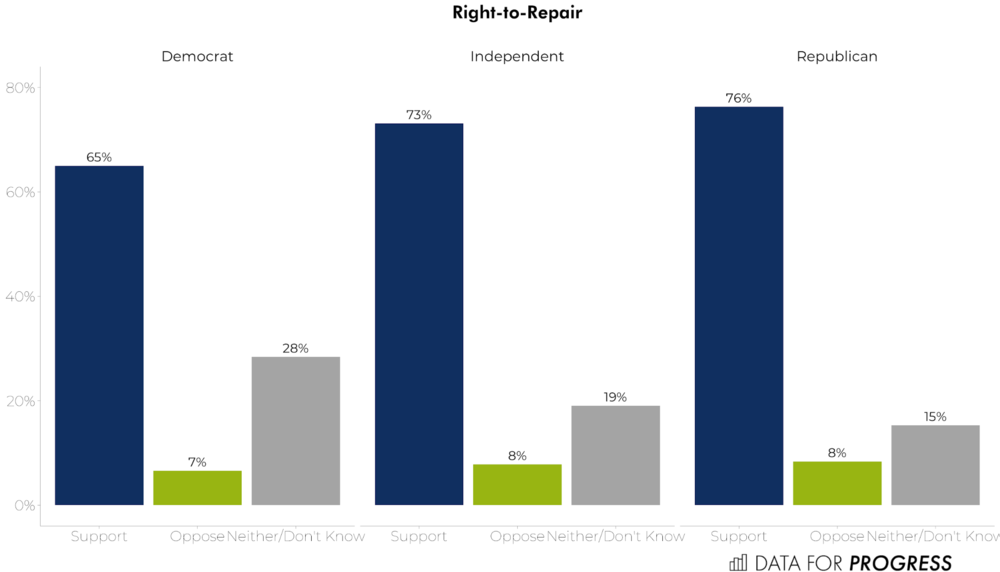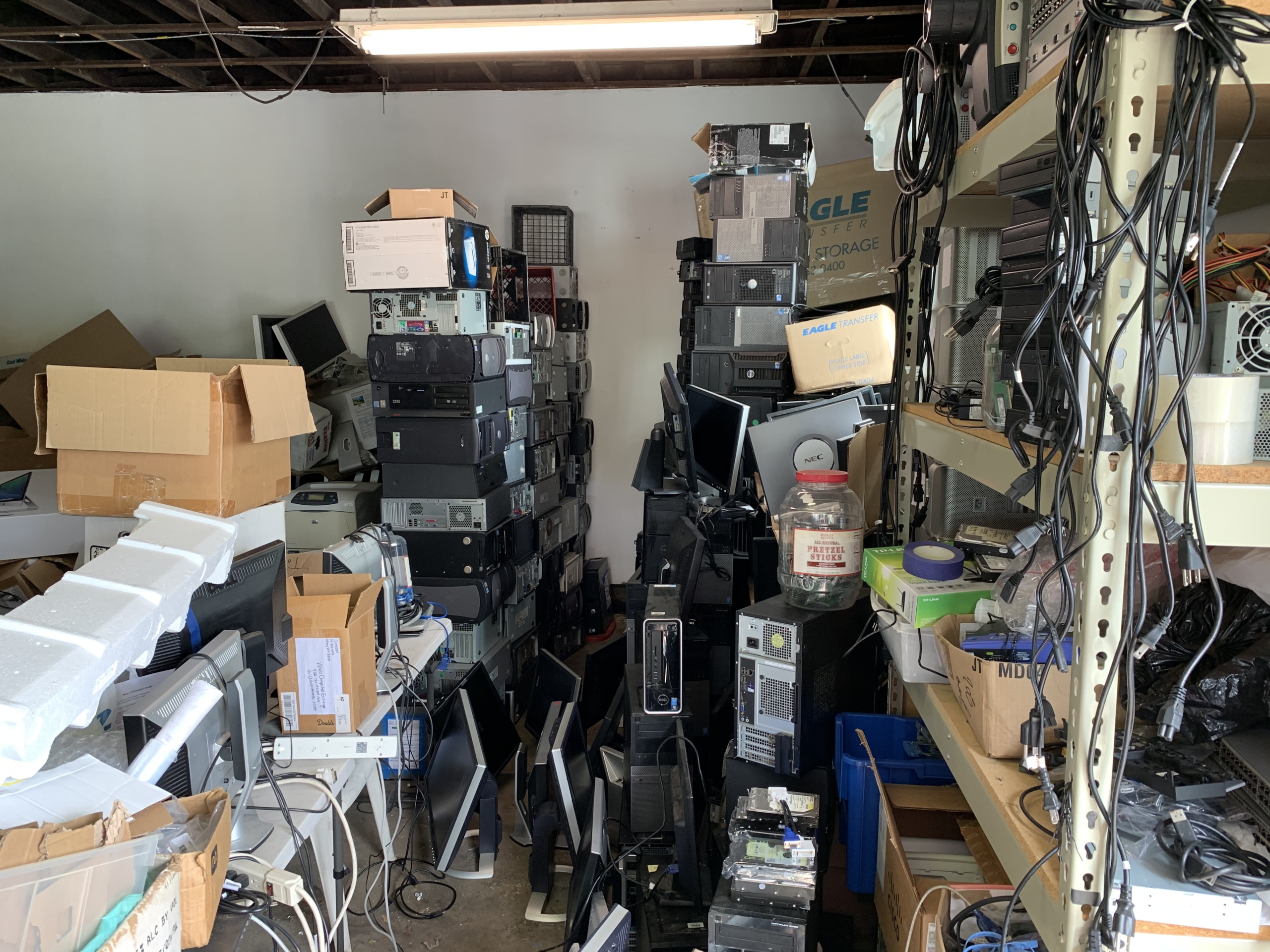
Right, left or center, we just want to fix our stuff
A new poll, conducted by YouGov and commissioned by Data for Progress, confirms: Right to Repair is incredibly popular no matter your political leanings.
When I’m asked what I do, I say that I run the Right to Repair campaign for the nonprofit U.S. PIRG. Most of the time, I get the follow up question: “Right to Repair…what’s that?”
At that point, I smile. I’m about to win another convert.
After all, most of us agree that manufacturers shouldn’t be able to monopolize repair and charge consumers whatever they want to fix our stuff (while their employees not-so-subtly push us to buy a new device instead).
And most of us think it’s absurd that Americans dispose of 416,000 cell phones each day. (Well, besides the companies that make new phones.)
So when I describe Right to Repair, it often results in “a ha” moments for people, regardless of their political leanings. Many have a general, anecdotal sense that things don’t last as long as they used to, and that getting something fixed seems like more and more of a hassle. But they haven’t connected the dots to see how this trend is by design. The companies that make our stuff set up arbitrary barriers to control what gets repaired, who does those repairs, and most critically, what it costs.

Right to Repair reforms aim to remove those arbitrary barriers and give people access to what they need to fix stuff — spare parts, tool, repair software and manuals.
A new poll, conducted by YouGov and commissioned by Data for Progress, appears to confirm my experience: Right to Repair is incredibly popular no matter your political leanings.
Their poll, which focused on farm equipment, found that 71 percent favored Right to Repair laws, while only 7 percent opposed.
John Ray, Senior Political Analyst with YouGov, called the results “extraordinarily high” in a phone interview. “It is not typical to see policies enjoy this level of support,” Ray explained, and struggled to think of another issue with similar levels of support across the political spectrum.
One of the most remarkable findings was the nearly identical levels of support from Democrats, Republicans and Independents, with Republicans polling the highest (76 percent).

Ray went on to explain that, in his experience polling Americans, more and more people have come to the conclusion that “corporations have too much power in the modern economy.” While in the past, you might expect more partisan splits around an issue which could be cast as “government interfering in the market,” Ray’s theory was people see “the net effect of [Right to Repair] is that it increases the economic liberty of American farmers.”
Other conservative voices have echoed this analysis. Brittany Hunter writes in the Foundation for Economic Education from the libertarian perspective: “If you’ve ever felt the hurt of shelling out $200 to fix your MacBook or repair your broken iPhone screen, then you might know how important it is to break the monopolistic hold huge corporations have on the world of consumer product maintenance, which is where the right to repair comes in.”
Over the last few months, Right to Repair has been gaining in visibility. Massachusetts Senator Elizabeth Warren announced support for Right to Repair, which prompted the New York Times to editorialize in favor of the policy. Tens of thousands of people have taken action through Repair.org and U.S. PIRG to call on their state legislators to advance Right to Repair reforms.
In the last six months, 20 states have debated Right to Repair legislation. But despite the “extraordinary” levels of support, and the increasing public awareness, not a single state held a floor vote on the legislation (though we’ve come very close).
In my experience, the reason progress is difficult to come by is similar to what Americans have been telling John Ray: Companies such as Microsoft, John Deere, Apple and Samsung — which benefit from repair monopolies — have significant power in the legislative process.
But so too is the power of the people, voters and constituents. And if you want to stop being nickel-and-dimed on repairs, you should stand up and make your voice heard.
Topics
Authors
Nathan Proctor
Senior Director, Campaign for the Right to Repair, PIRG
Nathan leads U.S. PIRG’s Right to Repair campaign, working to pass legislation that will prevent companies from blocking consumers’ ability to fix their own electronics. Nathan lives in Arlington, Massachusetts, with his wife and two children.
Find Out More

Why Microsoft extended Windows 10 support for schools for $1

Why do we toss working devices?

6 surprising facts from the UN’s 2024 electronic waste report


